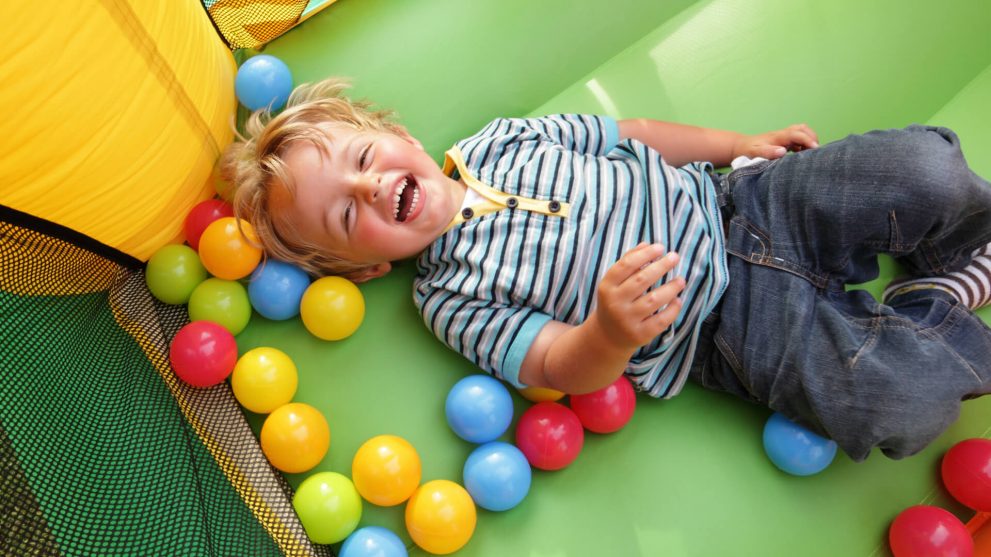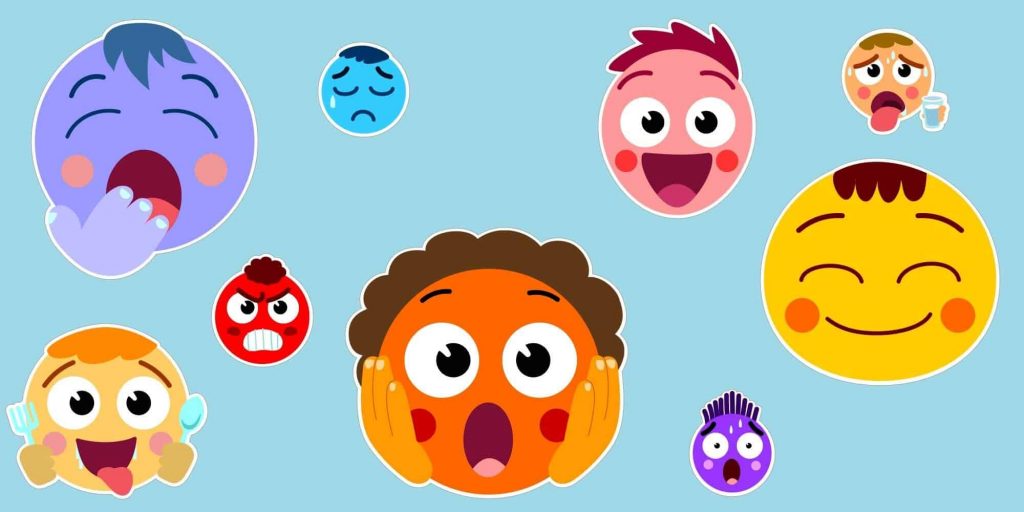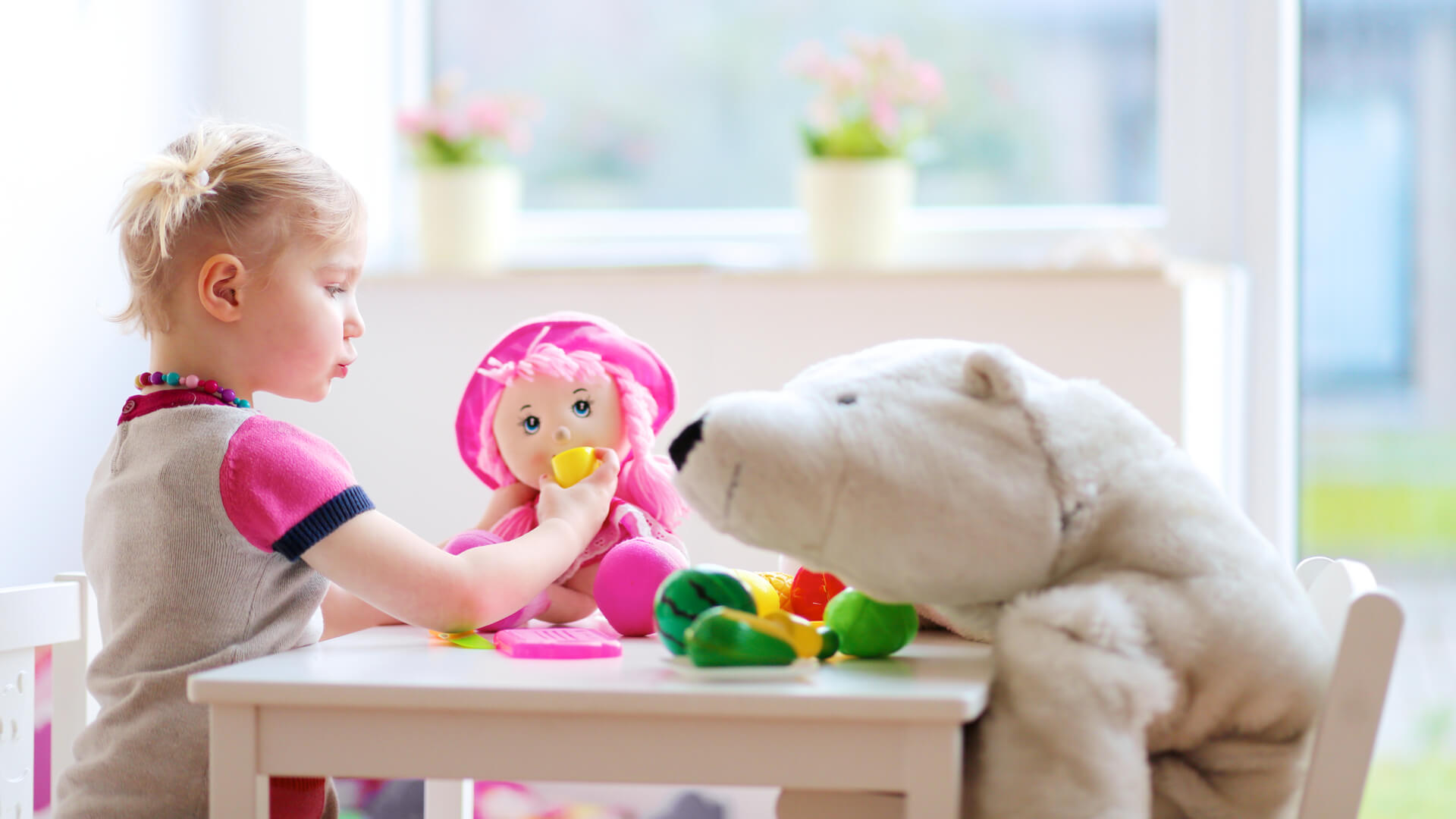Signs of Autism Spectrum Disorder
Jan 23, 2022 One of the most common questions I receive from parents at my private practice is, “do you think he/she has Autism Spectrum Disorder?”
In This Article
Parents, caregivers, and teachers need to know the signs of autism in children who have been diagnosed as being on the spectrum. As with any disorder, knowing symptoms can help the people in the child’s life begin to help him/her the best way possible. In this blog, I discuss the common signs or symptoms of Autism.
Boost Your Child’s Speech Development!
Improve language & communication skills with fun learning!

What is Autism?
According to the American Speech-Language-Hearing Association (ASHA), Autism Spectrum Disorder (ASD) is a neurodevelopmental disorder characterized by deficits in social communication and social interaction and the presence of restricted, repetitive behaviors.
Social communication deficits include impairments in aspects of joint attention (looking and focusing on multiple things or activities) and social reciprocity (give and take in conversations). People “on the spectrum” also find challenges in using verbal and nonverbal communicative behaviors for social interaction.
At its core, communication is a social process; therefore, the social communication issues experienced by individuals with ASD also impact their communication partners.
ASHA, 2012
Family members, friends, teachers, speech pathologists, and other service providers who interact with someone with ASD face the challenge of learning to respond to subtle attempts for communication, interpreting the functions of problem behavior, and modifying the environment to foster active, social engagement (ASHA, 2012). Peers oftentimes feel challenged when communicating with someone diagnosed with ASD. This can lead to even more issues with social interactions and a negative learning experience.
The Signs of ASD
Individuals diagnosed with ASD may have difficulties with four main areas and sub-areas that we briefly target in this blog. It is important to remember that not every individual will have difficulties in all areas – they may only have issues in one. Everyone is different!
If you’d like more detailed information on how Speech Blubs 2 can help your child overcome speech difficulties, give it a test drive in their 7-day FREE trial.
1. Social Communication

A person with social communication skills is able to engage and fully participate in all facets of a conversation.
Joint Attention
- Difficulty adjusting to new environments,
- Cannot take other perspectives,
- Focused on one thing at a time,
- Cannot monitor their own emotional state.
Social Reciprocity
- Difficulty getting another persons’ attention,
- Cannot engage in turn-taking during conversational tasks,
- Does not respond appropriately when asked questions.
Social Cognition
Social cognition refers to the mental processes involved in perceiving, attending to, remembering, thinking about, and making sense of the people in our social world (Moskowitz, 2005).
- Managing emotions are challenging.
- Difficulty relating to same-aged-peers.
2. Language and Related Cognitive Skills

The signs of autism in this area are the most significant indicators that a child should see a professional for an evaluation. As such, I explore this area in depth.
Impaired acquisition of words, word combinations, and sentence structure
- Your child might forget words that he previously acquired (starts at age 3).
- First words are nouns – usually objects they see in their normal environments. Proper nouns (names) and actions (verbs) are more likely to be delayed.
Use and understanding of verbal and nonverbal communication
- Gestures, body language, and facial expressions are delayed throughout the first year of life and continue to be an area of weakness or atypical throughout development.
- Immediate echolalia is observed – when a child just repeats whatever you say, immediately after you say it. They can also have delayed echolalia, where they repeat information hours, days, or weeks after they hear it.
- Children will not make eye contact or will only do so for a brief period of time.
Conversational deficits
- Speech sounds may be robotic and won’t flow together when the child starts to communicate.
- Not understanding the social norms of communication, such as proximity to another speaker, vocal volume, and timing (e.g. may talk over another person).
- Problems understanding figurative language (e.g. idioms) and humor.
Executive Functioning and Play
- Children may lack or have limited flexibility – need everything to be structured and predictable,
- Lack of inhibition (e.g. runs away from caregivers towards the street),
- Poor planning and organization,
- Poor problem-solving,
- Does not use objects appropriately during play,
- Repetitive, inflexible play (e.g. the child will play the same game or with the same object day after day).
Download Speech Blubs 2 to practice speech and language with your child! Learn more about how kids with autism spectrum disorder use the Speech Blubs 2 app.
3. Behavior and Emotional Regulation

Problems with behavior and emotional regulation include (ASHA, 2012):
- Issues dealing with changes in routine and/or changing from one activity to the next.
- Problems generalizing learned skills – can’t take what they learn in school and do the same thing at home.
- Using objects in unusual ways and uncommon attachments to objects.
- Crying, becoming angry, or laughing for no known reason or at inappropriate times.
- Using early-developing for self-regulation (e.g. chewing on clothing, rocking, hand flapping, vocal play).
- Using unconventional behavioral strategies and emotional expressions (e.g. aggression, tantrums, bolting from situations).
- Restricted, repetitive patterns of behavior, interests, or activities (e.g. immediate echolalia).
- Problems with self-management.
4. Sensory and Feeding

Deficits in sensory and feeding may lead to the following behaviors:
- Over-responsiveness, under-responsiveness, or mixed responsiveness patterns to environmental sounds, light, visual clutter, and social stimuli (e.g., social touch, the proximity of others, voices).
- Preference to play or be by oneself.
- Either loving or rejecting food due to its consistency.
- Eating a small variety of food.
REMEMBER. Not every individual will display all of these characteristics. They may have a little from the sensory and feeding category, a bunch from cognition and none from the other categories.
PLEASE NOTE. Even if your child is diagnosed with ASD, they can grow up to have the same things as every other child – be successful, have a job, and have a family.
It is important to recognize the signs of autism in babies to get your child properly diagnosed by a medical professional as early as possible!
Have a question for our Speech Therapists?

Im asking for further explaination regarding the symptoms of authesim. I have a 10 year old son and he is in grade 5 for this coming school year. He is not very good in reading and making simple sentences. Answering questions for example explaination he can’t answer very well. But he really wants to draw cartoons character. My question is my son has a symptoms of authesm?
Hi, thank you for your comment! That is impossible to say, since autism evaluation process is much more complex. His reading and sentence building issues need to be addressed as soon as possible too – talk to your pediatrician, get an educational psychologist or a speech therapist’s evaluation! Once you will have some answers, you can start taking the right actions to help your son.
my child is 3 years old and does not communicate with us he can say anything but doesnt answer when we say anything to him and there is no difficulty in learning in fact he is far good in it he remembers alphabet poem and even spelling of words also but doesn’t communicate with anybody does he has autism?
Hi, only a professional evaluation can give you an answer on whether your child is on the autism spectrum. Read here how to get them evaluated. Speech Blubs app can help you to boost communication skills, since it uses a video modeling as a teaching strategy. Try it out for yourself for 7-days free!
I have a 7 year old nephew. We didn’t consult any specialist yet, but he got all the signs that mentioned above. Is it possible that he got ASD?
Hi, whenever you have concerns, go to a specialist. You need to know what they will say, so you can take the proper actions to help your nephew in the best possible way. Read more on how autism is diagnosed.
My 4 year old son Is on the waiting list to be assessed
If I ask him a question like can you show me the square he won’t answer but if you change the wording he will understand.
Other things too like lacks in eye contact.
Or we try speak to him and he will go onto another subject like look at that bug on the floor.
If we ask him to find his shows he can’t just up and leave what he’s doing until he’s first.
He can’t stand loud noises like fireworks he violently shakes until the noise
Has stopped.
He is very repetitive with his actions.
He’s not good a recognising numbers
But brilliant at colours since
The age of 2.
He has to line up all his cars on a daily basis mostly through out the days and get upset when put away.
There are other things too but this list is already long.
Hi, keeping our fingers crossed that everything works out for you guys! You can do it, and remember you are not alone! Stay in touch. <3
Every since I was a child I have always had difficulty communicating and relating to others, I cant make eye contact with anyone , I have to follow a strict routine every single day or else I feel like I cant make sense of the world around me . Is it possible that I might have Autism and not know it?
Hi, thank you for you question! As you can see the articles on our blog focus on evaluating and diagnosing the ASD in children. But there is a talk about it in autism community. Here you can find more information! Hope that helps you in your search for answers.
Hi, I have a daughter that is turing 3 in the 7th of july she only have 30 words and she has 3 or a sentences she can say but only 2 or 3 words in the sentence . She has great eye contact and understands us but If she wants something she done signs with her hands I’m just worried.
You need to talk to your pediatrician and get your child evaluated. When you’ll get a professional opinion, you will know what are the next steps you need to do.
Hi is sensitive hearing part of autism
“Studies say from 30 percent to more than 90 percent of people with autism either ignore or overreact to ordinary sights, sounds, smells or other sensations. Among children who took part in the Simons Simplex Collection autism research project, about 68 percent had unusual sensory interests and 65 percent were sensitive to noise.” Read the full article.
Hi! I just want to inquire about the specialist. Here in Palawan do we have a doctor for this kind of condition?
You can try contacting your local Autism center or group for more information.
my baby is 2.3 months old and say only 4 to 5 words …by 8 months she was saying more words than now .she wont speak any sentences .
Do you mean 23 months old? Regression can happen for several reasons, but remember: always talk to your pediatrician or your speech therapist, and get your child evaluated!
This might seem to question a 5 month old baby but we have been concerned. At his behaviours. He is frightened of loud noises and has a real meltdown at numerous things , which I can understand many babies are , but he seems to start to come out of melt down only to restart it as if he can’t stop reliving it.
I am asking because he is due to have a second I vaccination next week and lots of people say it can make problems worse. Thankyou
Voice your concerns to your pediatrician!
Hi, I have an 8th year old son, who is assessed to have ASD by a specialist..He has speech delay before, but this time he can communicate a little except that he has poor comprehension.He is very good at recognizing pictures,words, numbers and others and can even read well even sentences. He learns easily but forgets them at once, but when recalled can recall but with lacking of comprehension. Is he really having an ASD?
Hi, your doctor or a specialist can give you that answer. But if you are looking for a speech therapy at-home practice, Speech Blubs can help you with that! The app uses video modeling that is great for kids on the spectrum. Try it out with a 7-day free trial!
I have a 3year old girl and she is cannot all night and starts sleeps at 7am in the morning and wakes up at 3pm in the afternoon.
Also she cant talk really well like words are mixed up o makes robotic noises
Am so worried how do I help her
Talk to your pediatrician, they are there to help you answer your questions! If you want to start working on your girl’s speech, check out Speech Blubs app. The app is great for you to start practicing words and expanding vocabulary!
im 14 and most of these are really accurate to me, oh god i cant even construct a proper sentence
I have a 2 year old child that once fed well but recently feeding is war, will not eat n so picky, he is yet to speak only babbling , does hand flapping when upset or excited
The first thing I would recommend for you to do is talk to your pediatrician and get a referral for a speech language pathologist. At two years of age, children should be saying at least 200 words. Anything less than that, we worry about a speech and language impairment. The picky eating, hand flapping and lack of communication might be signs of Autism Spectrum Disorder. Although there are varying levels of this disorder, there are several key signs that a professional will look for. I would therefore suggest that you also seek out a developmental pediatrician. These doctors are different from a regular pediatrician so you need to make sure you’re seeking out the correct professional.
Depending on where you are located, waiting lists can be several months to a year, so I’d get on this appointment quickly. In case you can’t get into a developmental pediatrician right away, the speech therapist can start working on things with your child that will decrease sensory overload (hand flapping) and will definitely work on increasing verbal communication.
If your child is diagnosed with Autism, they will also suggest that you see an occupational therapist in conjunction with the Speech therapist. The occupational therapist will dive deeper into sensory issues that could be leading to the picky eating and hand flapping when upset or excited.
Again, I’m not sure where you are located, but because your child isn’t three, you may also qualify for early intervention services. These services are typically free or low cost therapies provided to families who have children with social or communication issues. The therapist will come to your home and provide services, whether it be occupational or speech, with you present!
Stacie Bennett, M.S. CCC-SLP
I have a 2 year old son who is not speaking yet. He can recite the alphabets. He plays a lot but I am beginning to get worried. Could he have autism?
Just because a child isn’t talking, doesn’t mean they have autism. Children can absolutely have a speech delay without being on the spectrum. If he is two, I would suggest you look into speech and language therapy. This will help him to learn vocabulary and start putting words into sentences.
Stacie Bennett, M.S. CCC-SLP